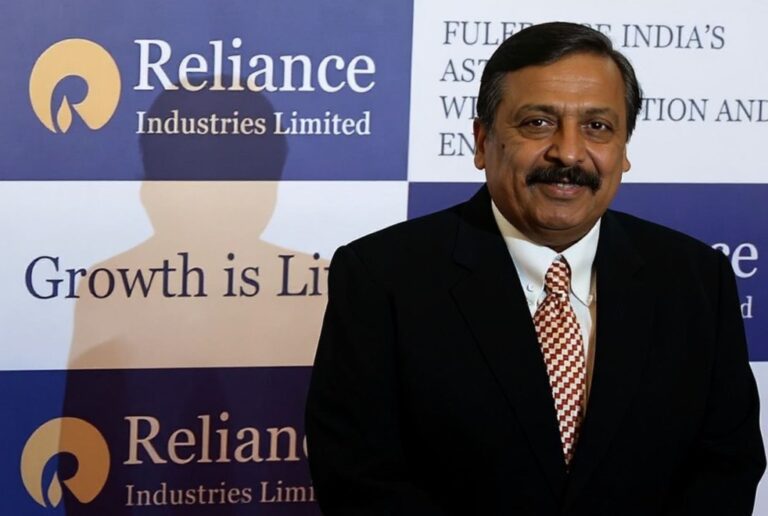
Mukesh Ambani once said that money means nothing to him.
One might think it is easy for what was once the richest man in the world to say, but he learned that invaluable lesson from his late father, Dhirubhai Ambani, and it stuck with him.
Mukesh was born in Yemen on April 19, 1957, into a middle-class family where his father worked as a petrol gas attendant from the age of 16.
It is here that Dhirubhai picked up the art of trading before packing the family and moving back to India.
Mukesh may later say money means nothing to him but back then, money didn’t come easy to the Ambanis.
Six of them crammed into a two-bedroom apartment in Bhuleswar, Mumbai, because that was all Dhirubhai could afford.
But their fortunes would soon change.
The education of young Mukesh Ambani
At this point, Dhirubhai began dreaming of a better life for himself and his family. He knew the London Stock Exchange had a high demand for Yemen coins because of their silver content.
In a true rags-to-riches story, he made the decision to melt the coins into silver and sold them to gold traders, putting aside whatever he made as savings.
He also began dabbling in the spices and textile sector in the 1950s, through a newly formed company which he called Reliance Commercial Corporation (RCC).
By the late 1960s, Reliance was thriving. The Ambanis moved out of the chawls and into one of Mumbai’s best neighbourhoods.
While Mukesh officially attended Hill Grange High School with his brother Anil, he also got another form of education at the same time.
Dhirbhai hired a tutor to take Mukesh on working-class field trips every day. For three hours, they would ride public transport, buy train tickets, play hockey, among others.
He would also visit a village for around two weeks once a year. Speaking about these trips, Mukesh called them “one of the best things that happened to me in my life.”
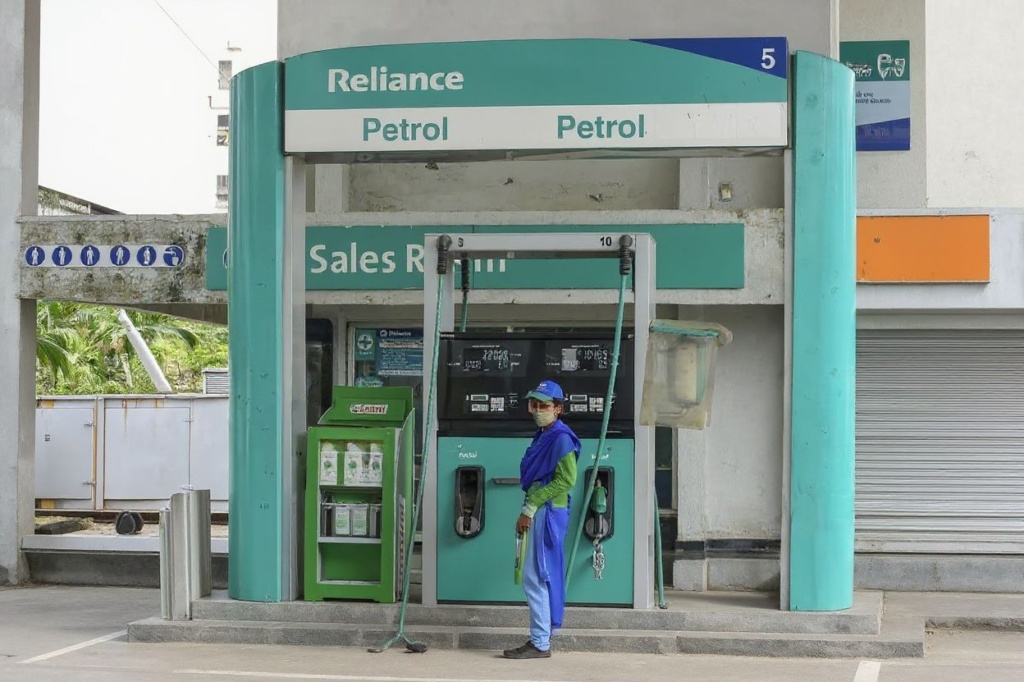 Reliance Industries Petrol is one of the industries that placed Mukesh Ambani at the top of his game.
Reliance Industries Petrol is one of the industries that placed Mukesh Ambani at the top of his game.
Who is Mukesh Ambani, the college engineering student turned MBA dropout to … professor?
After secondary school, he went to St. Xavier’s College in Mumbai and then moved on to enrol at the Institute of Chemical Technology.
Here, he completed a Bachelor of Engineering in Chemical Engineering.
By then, his father’s company had taken off and was doing well. Mukesh wanted to study more and applied to a few universities abroad.
He was accepted by Stanford University‘s MBA programme. His aim was to learn as much as he could so he could return to India and help his father expand the family company.
While at Stanford, he was exposed to some of the best minds in business, like Nobel Laureate Bill Sharpe.
Sharpe’s ideas have shaped Wall Street and how millions of people think of investment.
”You can view them as the intellectual fathers of the mutual fund business,” said Robert Litan, an economist at the Brookings Institution.
At Stanford, Sharpe made students think about questions like, “How do you make a difference in the world?”
But Dhirubhai still believed that real learning happens when you’re struggling to succeed in a place like India. It doesn’t happen in comfortable places like Palo Alto.
Much to Mukesh’s dismay, in 1980, Dhirubhai requested Mukesh return to India because he needed his son to build a polyester yarn plant there.
Being the dutiful son he was, he cut his education short and went back to help his father.
Mukesh remembers being an ordinary young man, eager to learn despite not coming back with the MBA he desired.
“I’m a Mumbai boy… On its streets, I learnt to stand up for myself; in its roadside stalls, I learnt to bargain; in its commercial centres, I learnt business; and in its cinemas, I learnt to dream,” he says.
Until his father called him specifically into Reliance Industries, Mukesh said he wanted to teach.
“I was pretty sure I wanted to either work at the World Bank or teach as a professor,” he says.
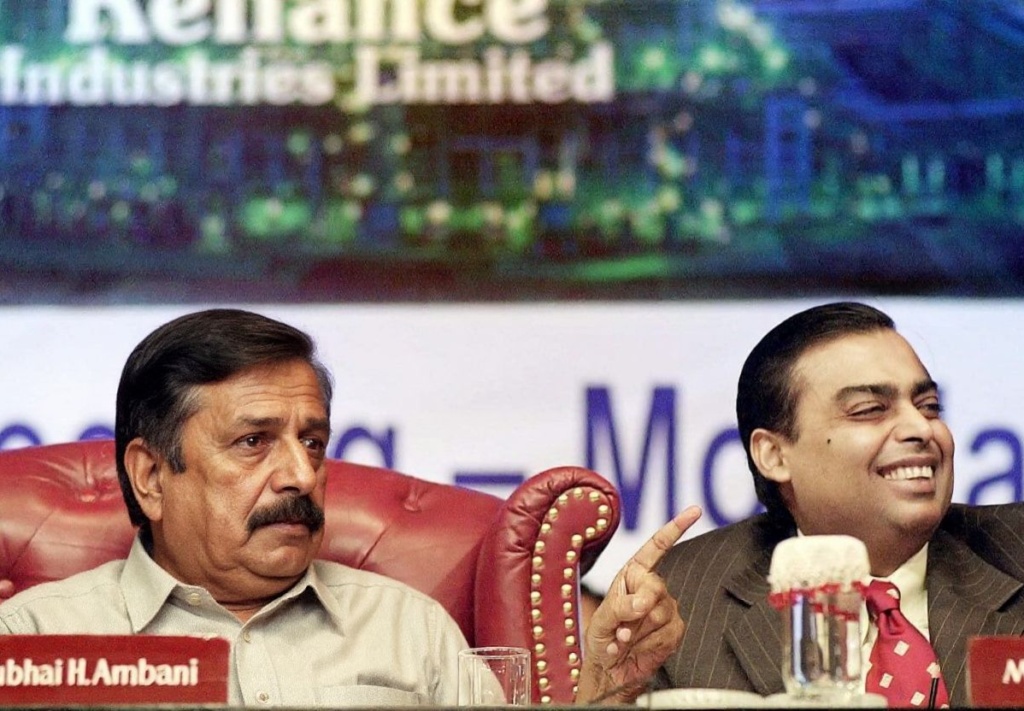 Mukesh Ambani, through his determination and skills, took Reliance Industries to greater heights.degree came in useful; he designed the backward integration system that enabled the company to become more efficient while cashing in the money through its revenue.
Mukesh Ambani, through his determination and skills, took Reliance Industries to greater heights.degree came in useful; he designed the backward integration system that enabled the company to become more efficient while cashing in the money through its revenue.
When Dhirubhai survived a stroke in 1986, Mukesh and Anil were given more responsibility and took over the day-to-day running of the brand.
Mukesh set up Reliance Communications Ltd and took over the Patalganga Petrochemical Plant.
Then, a second stroke took Dhirubai’s life in 2000. Though the family will never understand why, Dhirubhai never left a will.
This catapulted into a destructive tale of two brothers fighting for prominence and power until their mother, Kokilaben Ambani, stepped in.
She crafted a demerger deal in 2005 that gave Mukesh full control of oil and gas, petrochemicals, refineries, and manufacturing.
He built Jamnagar Refinery, the world’s biggest refinery that took US$6 billion to construct back in 2008. This plant turned out to be a cash cow.
Anil meanwhile, took electricity, financial services, and telecommunications under his wing.
But the sparring between the two didn’t end there.
Slapping Mukesh with a US$2 billion lawsuit for defamation from an interview left a nasty stain on the brothers’ relationship before matriarch Kokilaben stepped in again.
This time, she brokered peace and created a new non-compete agreement between the two brothers.
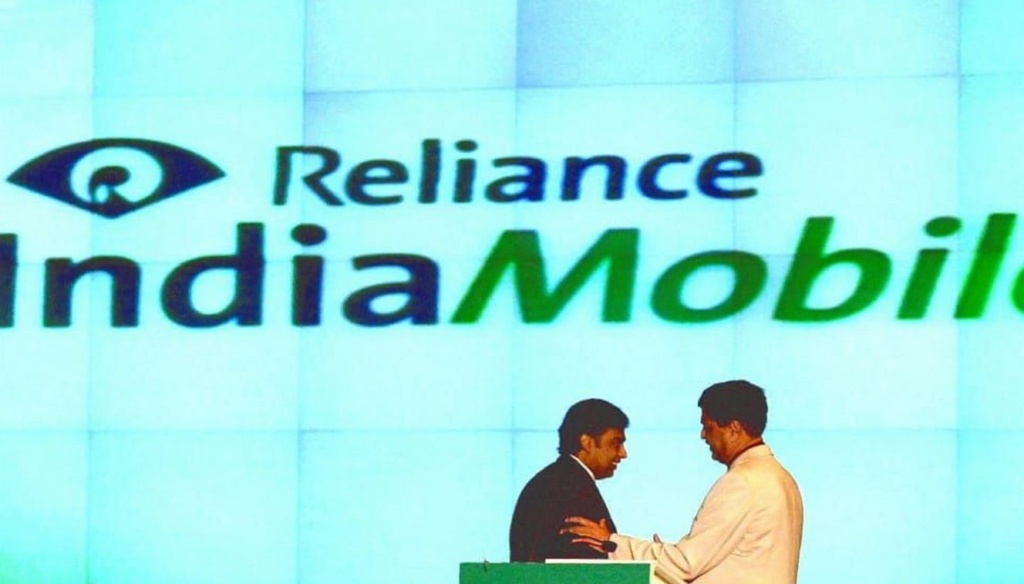 Venturing into the telecommunication sector really drove the industry forward.
Venturing into the telecommunication sector really drove the industry forward.
How Yale and Mukesh Ambani’s daughter brought 4G to India
Despite Anil gaining full control of the telecommunication arm, it didn’t stop Mukesh from forming ideas on how to make even more money through this sector.
The story goes that his daughter Isha had come back for holidays from Yale University and found the internet connection to be very slow.
She wanted to submit some coursework and he recalls her stating, “the internet sucks in our house”.
Isha’s twin brother, Akash, then surprised Mukesh with an idea on how the future would move into digitalisation, Mukesh says.
“These young Indians convinced me that broadband internet is the defining technology of our age and India cannot be left behind.”
Taking that on board, Mukesh bought a 95% stake in Infotel Broadband and in 2013, renamed it Reliance Jio Infocomm.
Jio was launched in September 2016 and became a game changer.
The US spearheaded the 1G mobile network. Europe brought in 2G, and China spurred 3G. But Jio created the largest greenfield 4G LTE-only data network in the world, Mukesh claims.
“This will make India a leader in 4G in 2019,” he says.
“Jio took just three years to build a 4G LTE network, which is much larger and far more advanced. And it is also 5G-ready today.”
Within 170 days of its launch, the firm had over 100 million customers.
India jumped in rankings from 155 to number one for its mobile data broadband consumption in less than two years because of Jio, Mukesh says.
“Jio has already grown to be the biggest start-up in India’s history.”
 After their father’s death, Mukesh and Anil Ambani encountered a power struggle for the company.
After their father’s death, Mukesh and Anil Ambani encountered a power struggle for the company.
The education of Mukesh Ambani’s family
In 2023, Mukesh regained his spot as the richest person in Asia on Forbes Billionaire list. His real-time net worth sits at US$85.2 billion.
As the chairman of Reliance Industries, Mukesh Ambani has spelt out his succession plan for his tight-knit family.
Daughter Isha Ambani will oversee retail; Akash Ambani chairs Jio, while Anant Ambani has been inducted into the new energy business.
Despite being born into what seems like an insane amount of wealth, the three children were taught to appreciate and work hard in life.
Pocket money, tight curfews and public transport were all a part of their lives growing up, while their very own father made headlines for the billions he was making.
Mother Nita Ambani explains she gave each child a mere five Indian rupees every Friday to spend at the school canteen.
 Mukesh Ambani's family played a critical role in his success. Nita recalls asking Mukesh to take public transport with her one day, something the children followed in pursuit during college days. Unlike most billionaires who barely know their children, Nita strongly emphasised the need for a strong father figure in the children’s lives, especially when it came to homework and studies. Mukesh may have been busy influencing Reliance and the economy, but he needed to impact the children’s future equally as much, Nita says. “I believe that it’s not just quality, but also the quantity of time spent with the kids that makes them sound individuals.” And each child carried this with them through their adulthood. Isha Ambani graduated with a psychology degree from Yale. Showing a keen interest in her Asian heritage, she explored South Asian Studies as her second major at Yale.
Mukesh Ambani's family played a critical role in his success. Nita recalls asking Mukesh to take public transport with her one day, something the children followed in pursuit during college days. Unlike most billionaires who barely know their children, Nita strongly emphasised the need for a strong father figure in the children’s lives, especially when it came to homework and studies. Mukesh may have been busy influencing Reliance and the economy, but he needed to impact the children’s future equally as much, Nita says. “I believe that it’s not just quality, but also the quantity of time spent with the kids that makes them sound individuals.” And each child carried this with them through their adulthood. Isha Ambani graduated with a psychology degree from Yale. Showing a keen interest in her Asian heritage, she explored South Asian Studies as her second major at Yale.
It was also during this time that she made her debut in society — dazzling in a Christian Dior gown at the glamorous le Bal des Debutantes in Paris.
After graduation, she took on a role at a prominent consulting firm, McKinsey & Company, as a business analyst before going back to India.
The short stint at the firm saw her sharpen her skills in the business world, readying her to assume more responsibilities at Reliance Industries.
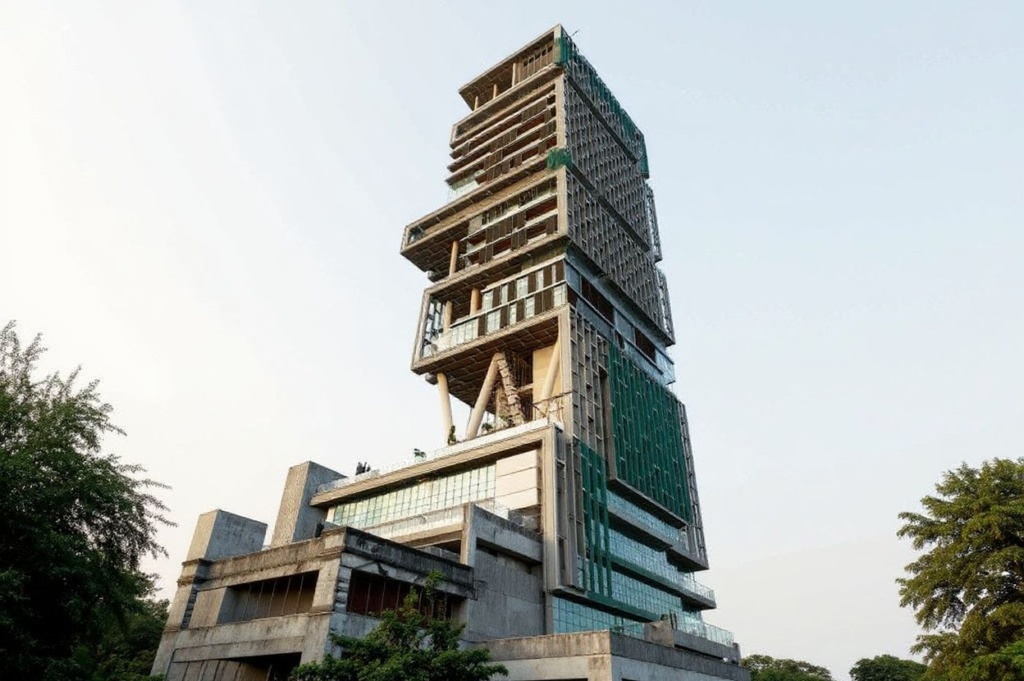 Mukesh Ambani house is a 27-storey private residence called Antilia.Stanford University’s Graduate School of Business, graduating in 2018.
Mukesh Ambani house is a 27-storey private residence called Antilia.Stanford University’s Graduate School of Business, graduating in 2018.
While studying, she took up a teaching job at Stanford’s nursery. It is said her genuine passion for education is what drove her to undertake these programmes, despite having so much money.
And this passion continued in the form of the Dhirubhai Ambani International School, run by her and her mother Nita.
Twin brother Akash went to Brown University and majored in Economics.
In 2014, Akash graduated, and within four days, began working at his father’s company where he also interned and learned the ropes.
Mukesh stepped down from the board of Reliance Jio Infocomm and handed the reins over to Akash.
Today, he is head of strategy at Reliance Jio and is credited with leading key acquisitions for the company.
Younger brother Anant followed in his brother’s footsteps and graduated with an Economics degree from Brown University in 2017.
He currently heads the energy business of Reliance Industries and is on the board of Jio Platforms and the retail ventures of the company.










